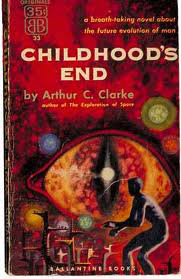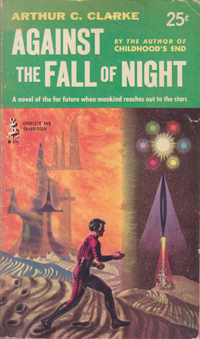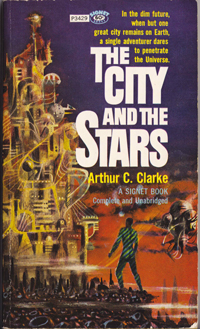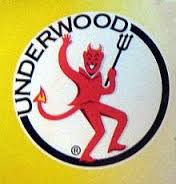

|
Contact Us Table of Contents Search Site Google listing of all pages on this website Site Map Toby Johnson's Facebook page Toby Johnson's YouTube channel Toby Johnson on Wikipedia Toby Johnson Amazon Author Page  Secure site at https://tobyjohnson.com Also on this website: As an Amazon Associate
I earn from qualifying purchases. Toby Johnson's books: Toby's books are available as ebooks from smashwords.com, the Apple iBookstore, etc. FINDING
YOUR OWN TRUE MYTH: What I Learned
from Joseph Campbell: The
Myth
of the
Great Secret
III GAY SPIRITUALITY: The Role of Gay Identity in the Transformation of Human Consciousness
GAY PERSPECTIVE: Things Our Homosexuality Tells Us about the Nature of God and the Universe
SECRET MATTER, a sci-fi novel with wonderful "aliens" with an Afterword by Mark Jordan
GETTING
LIFE IN PERSPECTIVE:
A
Fantastical Gay Romance set in two different time periods
THE FOURTH QUILL, a novel about attitudinal healing and the problem of evil TWO SPIRITS: A Story of Life with the Navajo, a collaboration with Walter L. Williams CHARMED LIVES: Spinning Straw into Gold: GaySpirit in Storytelling, a collaboration with Steve Berman and some 30 other writers THE MYTH OF THE GREAT SECRET: An Appreciation of Joseph Campbell
IN SEARCH OF GOD IN THE SEXUAL UNDERWORLD: A Mystical Journey FINDING
GOD IN THE SEXUAL UNDERWORLD: The Journey Expanded
Books on Gay Spirituality: White Crane Gay Spirituality Series
Articles and Excerpts:
Review of Samuel Avery's The Dimensional Structure of Consciousness Funny Coincidence: "Aliens Settle in San Francisco" About Liberty Books, the Lesbian/Gay Bookstore for Austin, 1986-1996 The Simple Answer to the Gay Marriage Debate A Bifurcation of Gay Spirituality Why gay people should NOT Marry The Scriptural Basis for Same Sex Marriage
Gay ConsciousnessQ&A about Jungian ideas in gay consciousness What Jesus said about Gay Rights Common Experiences Unique to Gay Men Is there a "uniquely gay perspective"? Interview on the Nature of Homosexuality What the Bible Says about Homosexuality Mesosexual Ideal for Straight Men Waves of Gay Liberation Activity Wouldn’t You Like to Be Uranian? The Reincarnation of Edward Carpenter Why Gay Spirituality: Spirituality as Artistic Medium Easton Mountain Retreat Center Andrew Harvey & Spiritual Activism The Mysticism of Andrew Harvey
Enlightenment
Joseph Campbell's description of Avalokiteshvara You're Not A WaveJoseph Campbell Talks about Aging What is Enlightenment? What is reincarnation? How many lifetimes in an ego? Emptiness & Religious Ideas Experiencing experiencing experiencing Going into the Light Meditations for a Funeral Meditation Practice The way to get to heaven Buddha's father was right What Anatman means Advice to Travelers to India & Nepal The Danda Nata & goddess Kalika Nate Berkus is a bodhisattva John Boswell was Immanuel Kant Cutting edge realization The Myth of the Wanderer Change: Source of Suffering & of Bliss World Navel What the Vows Really Mean Manifesting from the Subtle Realms The Three-layer Cake & the Multiverse The est Training and Personal Intention Effective Dreaming in Ursula LeGuin's The Lathe of Heaven Gay
Spirituality
|
Karellen as a Shaman The main character of Arthur C. Clarke's classic sci-fi novel Childhood's End is the Overlord commander Karellen. Readers of the novel will recall that the book is divided into three parts, each separated by about 50 years. The first section, titled "Earth and the Overlords," features the arrival of the aliens. A quirk of the story is that they do not allow themselves to be seen. They want the people of Earth to be accustomed to them before they reveal their appearance. The second section, titled The Golden Age, begins with the Overlords' coming down from their spaceships and showing themselves. Suddenly everyone understands why they wanted the 50 year getting-to-know-you time. Those 50 years have brought on a Golden Age for humankind; peace on Earth at last; the Overlords have brought boons in technology and culture that have dramatically improved human life. BUT it turns out they look all the world like devils: leathery wings, little horns, black scaly skin and a little tail. This section ends with the human protagonist, a young black man from South Africa named Jan Rodricks, stowing away on an Overlord ship in order to visit their planet. By the time he returns home, for the third section, another some fifty years has elapsed because of Einsteinian time-dilation caused by the speed of interstellar travel. The third section, "The Last Generation" then recounts the marvelous but frightening transformation of the Last Generation of human children into spiritual beings who escape the bonds of matter entirely and are absorbed in a great mystical apocalypse into the Overmind, the collective consciousness of the Cosmos itself, "God." One of the themes of the novel is that the Overlords themselves do not expect ever to be similarly absorbed into the Overmind. Though they are its servants who go about the galaxies overseeing the transformation of biological species into spirit, their race is not evolving in that direction. They forever remain barren. Here's the ending: In a soundless concussion of light, Earth's core gave up its hoarded energies. For a little while the gravitational waves crossed and re-crossed the Solar System, disturbing ever so slightly the orbits of the planets. Then the Sun's remaining children pursued their ancient paths once more, as corks floating on a placid lake ride out the tiny ripples set in motion by a falling stone. Understanding that Sir Arthur was a gay man helps explain Karellen and the Overlords. I  corresponded for a while with
Clarke, in the late 1990s,
when I sought his permission to acknowledge him as a sort of gay wise
man/prophet in one of my books on gay spiritual sensitivity. I learned
that he was quite fascinated with the role homosexuals have played in
history as leaders of culture. C.A. Tripp's book on Lincoln as gay, The Intimate World of
Abraham Lincoln, had just been published and
Clarke was enthusiastic about this revelation as evidence. corresponded for a while with
Clarke, in the late 1990s,
when I sought his permission to acknowledge him as a sort of gay wise
man/prophet in one of my books on gay spiritual sensitivity. I learned
that he was quite fascinated with the role homosexuals have played in
history as leaders of culture. C.A. Tripp's book on Lincoln as gay, The Intimate World of
Abraham Lincoln, had just been published and
Clarke was enthusiastic about this revelation as evidence.It is said Clarke has left a collection of his writings--called the "Clarkives"--with the instruction they not be made public until 30 years after his death. I suspect the Clarkives are going to include those writings about homosexuality as cultural leadership. So those 30 years correspond with the 50 years the Overlords kept themselves in hiding. And their "barrenness" corresponds with the homosexual experience of being excluded from the procession of the generations. Homosexuality has taken some getting used to in modern society. Old ideas have been shown to have been false, misleading and misguided. The Overlords' appearance as devils who turn out to be "angels" as midwives of Earth's planetary mind parallels the recognition of the role homosexuals play in human evolution. The Overlords in some very real way in Arthur C. Clarke's consciousness, I believe, represent gay people as service providers and culture leaders. And religion, mystical phenomena, and the "mysterious world" (as Clarke's TV shows about fringe phenomena was called) represent the evidence and form of the evolution of human consciousness into "God," i.e., the Overmind, the consciousness of the Cosmos itself. Gay people are the shamans and gatekeepers who work for the development of planetary consciousness and reveal the real meaning of religion. Read Toby Johnson's essay on Arthur C. Clarke Read Toby Johnson's suggestions for the Best Gay Science Fiction novels An updated, revised and expanded
edition of Toby Johnson's
classic soft sci fi romance novel
SECRET MATTER -- with its quirky and mystical spin on what it means to be gay. Click on the title for info. The novel begins with an homage to Clarke in the form of aliens arriving in great flying saucers over all the major cities of Earth.  Another "crypto-gay" character in Arthur C. Clarke's opus is the Jester Khedron in The City and the Stars. Clarke's first novel was Against the Fall of Night which he later rewrote as The City and the Stars. In both versions of the story, the protagonist is a teenage boy, named Alvin, living in a future domed city called Diaspar that the inhabitants of believe is the only vestige of human life left on Earth. The character of the Jester appears in the second novel. The Jester is a role that the Central Computer gives in each generation so that something will happen different from what has always happened.  Alvin also is a new being, a creation of the Central Computer who will help lead Diaspar into the future by revealing what really happened in the past. Khedron the Jester is a guide and helper for Alvin in his heroic quest. Being such a "jester" and malcontent and goad for change is one of the roles gay men have always played--for better or worse. Khedron, I think, is an example of the gay man as guide for youth. Alvin saves the world by discovering that most of what the inhabitants of Diaspar believe—and live in fear of—was myth and made-up legend. He discovers there is a whole universe beyond Diaspar. Isn't this the lesson gay men have to teach the youth of every generation? Back to top About the 2015 Syfy MovieIn December 2015, the Syfy Channel played a three-part mini-series "based on" Childhood's End. I was relatively accepting of the needs of a movie to keep the same characters throughout, so it made sense to collapse the fifty years in Clarke's novel to a mere fifteen, and to have featured characters from the end of the book appear in the opening--that's specically Milo/Jan Rodricks. In the novel, he is a black South African named Jan; maybe that was a little too Afrikaans and Milo was more appropriate for a citizen of the new South Africa today. In the novel Rikki Stormgren who is the liaison between Earth and the Overlords is the Secretary General of the United Nations. That makes sense. The movie has him an anonymous farmer named Ricky, chosen, apparently, at random. The character of the Christian counselor, the disillusioned and disaffected suicidal mayor of New Athens and the emotionally fragile girlfriend of Milo are all new additions to the plot. I don't think they help; I think they muddle the message. The book is so much simpler, and so much more realistic than this miniseries. It is science-fiction, not horror. It is about the next step in human evolution. In a way, it is about the true nature of God, not as a human myth, but as a reality in the cosmos at the level of consciousness. It is a scientifically sensible version of the Christian myth of the Second Coming and the Millennium of Peace. In Clarke's retelling the story, the Savior arrives in a spaceship and bestows technological and scientific boons to usher in The Golden Age, and then assists the Earth through a final stage of evolution into pure spirit. The irony Clarke adds to the familiar story is that the angels who come to prepare the way turn out to look like "devils." But they have come to do good, indeed, the best possible good—to usher humanity into oneness with God, the consciousness of the Cosmos. In the book, several of the main characters have come to the party at Rupert Boyce’s in Africa, but as a matter of their social lives, not because of sinister "invitations." It's a housewarming party for old friends and an introduction to Rupert's new wife. This is how Jan Rodricks and the Greggsons are introduced. Boyce has a huge collection of books about unexplained phenomena, psychic powers and mystical material and religion. In the novel, there are numerous Overlords, not just Karellen. One of them named Rashaverak is at Boyce’s studying his library when the party happens. As the party is winding down, some people, including Rupert, the Greggsons, and Jan, who is Rupert Boyce's new brother-in-law, are playing with an old-time ouija board. Rashaverak also comes to watch. The ouija board—as they usually do—begins to spell out meaningful sentences. But after a while they seem to be about the Overlords: Man is not alone Near Man is Country of Others. Then Jan speaks up from the group and asks “Which star is the Overlords’ sun?” And the ouija board answers "NGS549672," an astronomical address of a star in the constellation Carina. This is how Jan/Milo discovers the Overlords’ star. The thing in the movie about the Overlords' alphabet being made up of constellations didn’t really make any sense. They are star-travelers, so the “constellations” would change from every different perspective. And actually in both novel and movie, there's really no need for Jan to know which star they come from for him to want to stow away and go there to see. But the big reversal in the plot in the movie from the book is the characterization of the Overlords. Karellen is made to be much too sinister in the movie. He wasn’t supposed to be “The Devil,” he was just from a race that looked like what human beings thought of as “devils.” What if they'd evolved from pterodactyls, for instance, flying reptiles? Or from bats? One of the questions Rikki Stormgren ponders is what must have happened in early Earth history that introduced the image of the Overlords into Earth’s mythology, and especially, why as "devils." In the novel, in a show of affection and trust, Karellen allows Rikki to see him fleetingly through the one-way glass some fifty years before the rest of the world will see. This scene is paralleled in the novel by Ricky the Farmer holding his camera against the mirror as Karellen says, "Goodbye, Ricky." Playing off Clarke’s idea in 2001: A Space Odyssey, I think maybe we can draw the implication that the Overlords had been to Earth in the distant past and maybe even originally seeded Earth with intelligence or somehow intervened in primate evolution to introduce intelligence—and that is what is mythologized in the Bible and popular legend as the devil’s temptation to eat of the fruit of the Knowledge of Good and Evil. They came for good, but it was misunderstood. And that's the irony throughout Clarke's retelling of the Second Coming.  At the
mall recently, I saw this stuffed doll in the window of
Make-a-Bear Workshop.
It’s actually Toothless the Dragon from the movie How to Train Your
Dragon. But this is what Karellen should have looked more like.
This
would be a muppet of him, of course. But he wasn't a monster; he was
only devil-like in appearance. Think Underwood Deviled Ham. At the
mall recently, I saw this stuffed doll in the window of
Make-a-Bear Workshop.
It’s actually Toothless the Dragon from the movie How to Train Your
Dragon. But this is what Karellen should have looked more like.
This
would be a muppet of him, of course. But he wasn't a monster; he was
only devil-like in appearance. Think Underwood Deviled Ham. He is the "snake" in the Garden of Eden, of course, but not as the enemy in the war between Good and Evil, but as the bestower of life and consciousness. (This is what Jeffrey J Kripal discusses in the wonderful book The Serpent's Gift: Gnostic Reflections on the Study of Religion.) In the novel, The Overlords are much more beneficent. They are simply an advanced race who come to earth and bestow boons of technology and knowledge. AND they are interested in the human race’s “mystical” abilities — which they themselves don’t have. The conflict in the movie over religion is a much more exaggerated expression of this idea about the Overlords’ interest in religion and mysticism. That whole episode in which the crazy Christian woman shoots Karellen is inserted into the plot for the movie. It didn't help. And the idea that Karellen protected Ricky from the pain of having children doesn’t fit the plot either. What is going to happen to the children is wonderful. They are advancing to the next step in the evolution of spirit. But in Clarke it is all very straight forward science that explains the mystical phenomena as evolution of consciousness. The children are not damned; they don't fly off into space. In fact, they are lovable and their psychic traits are lovable. It's sad, of course, when Karellen explains to Humankind that this is the last generation, but it's not horrific. The children love their parents and are tearful to leave when the spaceships come to pick them up and transport them to Australia. But it is understood that this is for their protection and to allow them to continue in their mystical/spiritual/ consciousness growth. Back to top |
Toby Johnson, PhD is author of nine books: three non-fiction books that apply the wisdom of his teacher and "wise old man," Joseph Campbell to modern-day social and religious problems, four gay genre novels that dramatize spiritual issues at the heart of gay identity, and two books on gay men's spiritualities and the mystical experience of homosexuality and editor of a collection of "myths" of gay men's consciousness.
Johnson's book
GAY
SPIRITUALITY: The Role of Gay Identity in the Transformation of
Human Consciousness won a Lambda Literary Award in 2000.
His GAY
PERSPECTIVE: Things Our [Homo]sexuality Tells Us about the Nature
of God and the Universe was nominated for a Lammy in 2003. They
remain
in
print.
FINDING
YOUR OWN TRUE MYTH: What I Learned from Joseph Campbell: The Myth
of the Great Secret III tells the story of Johnson's learning the
real nature of religion and myth and discovering the spiritual
qualities of gay male consciousness.
